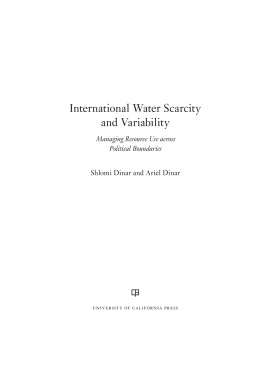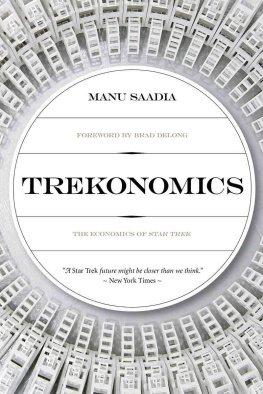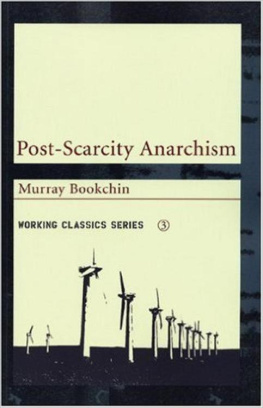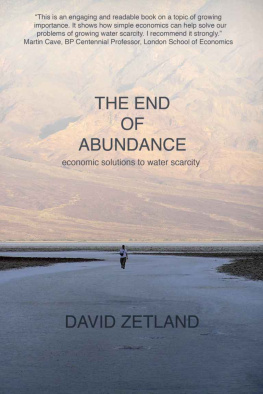
For Amma, Appa, and e3, for and with unconditional love
SM
For Anastasia, Sophie, and Mialoves of my life
ES
CONTENTS
INTRODUCTION
If ants are such busy workers, how come they find time to go to all the picnics?
MARIE DRESSLER, ACADEMY AWARDWINNING ACTRESS
We wrote this book because we were too busy not to.
Sendhil was grumbling to Eldar. He had more to-dos than time to do them in. Deadlines had matured from overdue to alarmingly late. Meetings had been sheepishly rescheduled. His in-box was swelling with messages that needed his attention. He could picture his mothers hurt face at not getting even an occasional call. His car registration had expired. And things were getting worse. That conference one connecting flight away seemed like a good idea six months ago. Not so much now. Falling behind had turned into a vicious cycle. Re-registering the car was now one more thing to do. A project had taken a wrong direction because of a tardy e-mail response; getting it back on track meant yet more work. The past-due pile of life was growing dangerously close to toppling.
The irony of spending time lamenting the lack of time was not lost on Eldar. It was only partly lost on Sendhil who, undeterred, described his plan for getting out.
He would first stem the tide. Old obligations would need to be fulfilled, but new ones could be avoided. He would say no to every new request. He would prevent further delays on old projects by working meticulously to finish them. Eventually, this austerity would pay off. The to-do pile would shrink to a manageable level. Only then would he even think about new projects. And of course he would be more prudent going forward. Yes would be rare and uttered only after careful scrutiny. It would not be easy, but it was necessary.
Having made the plan felt good. Of course it did. As Voltaire noted long ago, Illusion is the first of all pleasures.
A week later, another call from Sendhil: Two colleagues were putting together a book on the lives of low-income Americans. This is a great opportunity. We should write a chapter, he said. His voice, Eldar recalls, lacked even a trace of irony.
Predictably, the chapter was too good to pass up, and we agreed to do it. Just as predictably, it was a mistake, written in a rush and behind schedule. Unpredictably, it was a worthwhile mistake, creating an unexpected connection that eventually led to this book.
Here is an excerpt from our background notes for that chapter:
Shawn, an office manager in Cleveland, was struggling to make ends meet. He was late on a bunch of bills. His credit cards were maxed out. His paycheck ran out quickly. As he said, There is always more month than money. The other day, he accidentally bounced a check after overestimating the money in his account; he had forgotten a $22 purchase. Every phone call made him tense: another creditor calling to remind him? Being out of money was also affecting his personal life. Sometimes at dinner he would put in less than his fair share because he was short. His friends understood, but it didnt feel good.
And there was no end in sight. He had bought a Blu-ray player on credit, with no payments for the first six months. That was five months ago. How would he pay this extra bill next month? Already, more and more money went to paying off old debts. The bounced check had a hefty overdraft charge. The late bills meant late fees. His finances were a mess. He was in the deep end of the debt pool and barely staying afloat.
Shawn, like many people in his situation, got financial advice from many sources, all of it pretty similar:
Dont sink any deeper. Stop borrowing. Cut your spending to the minimum. Some expenses may be tough to cut, but youll have to learn how. Pay off your old debts as quickly as possible. Eventually, with no new debts, your payments will become manageable. After this, remain vigilant so as not to fall back in. Spend and borrow wisely. Avoid unaffordable luxuries. If you must borrow, be clear about what it takes to pay it back.
This advice worked better in theory than in practice for Shawn. Resisting temptation is hard. Resisting all temptations was even harder. A leather jacket he had coveted went on sale at a great price. Skimping on his daughters birthday gift felt less sensible as the day got closer. There were too many ways to spend more than he planned. Shawn eventually sank back into the debt pool.
It did not take long for us to notice the resemblance between Sendhils and Shawns behavior. Missed deadlines are a lot like overdue bills. Double-booked meetings (committing time you do not have) are a lot like bounced checks (spending money you do not have). The busier you are, the greater the need to say no. The more indebted you are, the greater the need to not buy. Plans to escape sound reasonable but prove hard to implement. They require constant vigilanceabout what to buy or what to agree to do. When vigilance flagsthe slightest temptation in time or in moneyyou sink deeper. Shawn ended up stuck with accumulating debt. Sendhil ended up stuck under mounting commitments.
This resemblance is striking because the circumstances are so different. We normally think of time management and money management as distinct problems. The consequences of failing are different: bad time management leads to embarrassment or poor job performance; bad money management leads to fees or eviction. The cultural contexts are different: falling behind and missing a deadline means one thing to a busy professional; falling behind and missing a debt payment means something else to an urban low-wage worker. The surroundings differ. The education levels differ. Even aspirations can differ. Yet despite these differences, the end behavior is remarkably similar.
Sendhil and Shawn did have one thing in common: each of them was feeling the effects of scarcity. By scarcity, we mean having less than you feel you need . Sendhil felt harried; he felt he had too little time to do all the things he needed to do. Shawn felt cash strapped, with too little money for all the bills he needed to pay. Could this common connection explain their behavior? Could it be that scarcity itself led Sendhil and Shawn to behave in such similar ways?
Uncovering a common logic to scarcity would have big implications. Scarcity is a broad concept that extends well beyond these personal anecdotes. The problem of unemployment, for example, is also the problem of financial scarcity. The loss of a job makes a households budget suddenly tighttoo little income to cover the mortgage, car payments, and day-to-day expenses. The problem of increasing social isolationbowling aloneis a form of social scarcity, of people having too few social bonds. The problem of obesity is also, perhaps counterintuitively, a problem of scarcity. Sticking to a diet requires coping with the challenge of having less to eat than you feel accustomed toa tight calorie budget or calorie scarcity. The problem of global povertythe tragedy of multitudes of people around the world making do with a dollar or two a dayis another kind of financial scarcity. Unlike the sudden and possibly fleeting tightening of ones budget due to job loss, poverty means a perpetually tight budget.
Scarcity connects more than just Sendhils and Shawns problems: it forms a common chord across so many of societys problems. These problems occur in different cultures, economic conditions, and political systems, but they all feature scarcity. Could there be a common logic to scarcity, one that operates across these diverse backdrops?









